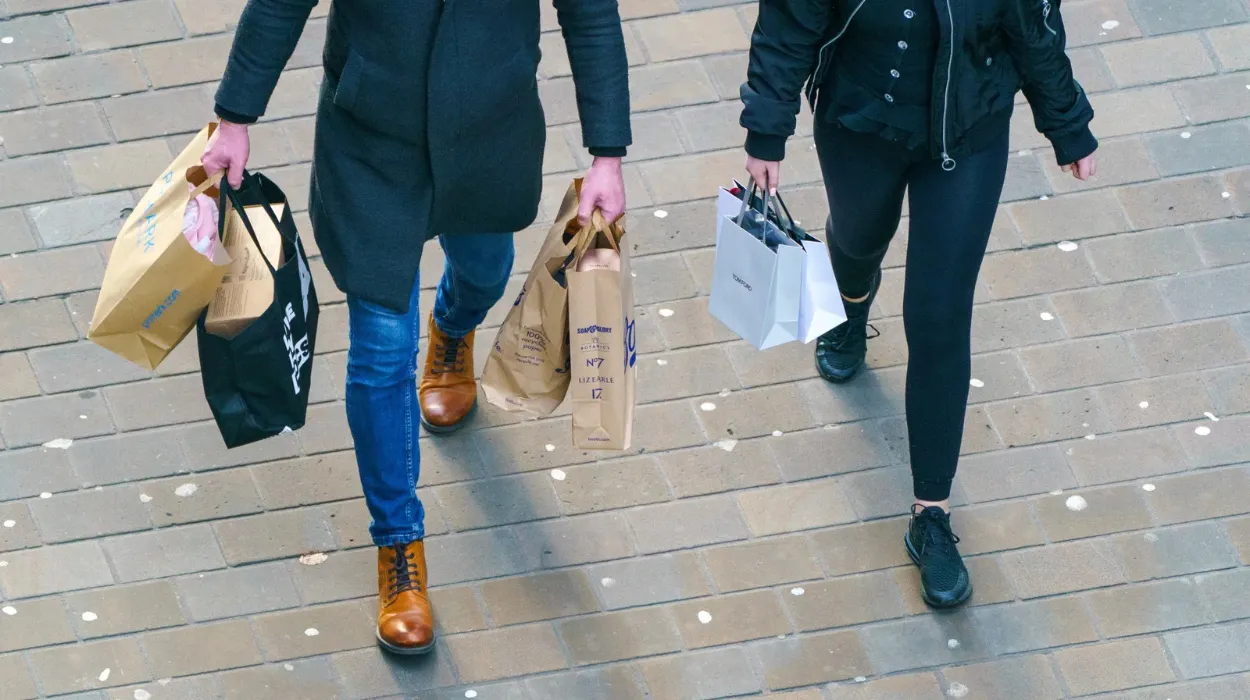UK (Parliament Politics Magazine) – Bank of England governor Andrew Bailey slammed Trump’s tariffs, calling them a major risk to the global economy and ineffective in fixing trade imbalances.
Mr Bailey warned that Trump’s tariff war poses a significant threat to global economic stability and fails to effectively resolve trade disparities.
What did Andrew Bailey say about Trump’s trade tariffs?
The Bank of England Governor, while addressing UK lawmakers, urged for a joint international approach to address trade imbalances rather than targeting surplus countries individually, as it could be counterproductive.
Mr Bailey stated,
“The impact on inflation can be ambiguous, but the risks to the UK economy, and indeed the world economy, are substantial.”
He called the recent tariffs as “a big episode” and added,
“I think there is a major shift going on. We have to take it very seriously. If you think the world economy is out of balance, the place to address those imbalances is in a multilateral forum not by bilateral action.”
The BOE’s chief suggested that the global trade and financial system, designed after World War II, may need to be reshaped. He pointed out that the US, which played an essential role in establishing the International Monetary Fund and the World Bank’s predecessor at Bretton Woods in 1944, was then a dominant economic power with substantial trade surpluses.
Mr Bailey stated,
“The US has ironically become the deficit economy. There is a fairly reasonable question: do you need to think about how the multilateral system works given that change? But what is essential is that we don’t abandon multilateralism,”
adding, it was
“designed asymmetrically by the US so the adjustment occurs in deficit countries.”
He raised concerns over the possibility of a US exit from the IMF or the World Bank, stating that such a move would be highly detrimental to the global economy. Mr Bailey said the US Treasury Secretary’s support for multilateral cooperation, highlighting its essential role in international financial stability.
What did Megan Greene say about Donald Trump’s tariffs?
Megan Greene, an external member of the monetary policy committee, stated, “Tariffs would push down growth,” highlighting concerns over economic impacts.
She warned that Trump’s tariff plans could shrink Britons’ disposable earnings, though their precise impact on inflation remains uncertain.
Responding to Labour MP John Grady’s inquiry regarding the impact of Trump’s tariffs on Glasgow East, she explained that they would lower demand for British goods. Ms. Greene warned that breaking up the global economy would weaken knowledge sharing and exchange, further slowing economic progress.
While speaking before Parliament’s Treasury Committee, she stated,
“It seems likely that the implications for growth are fairly clear—tariffs would push down on growth. The implications for inflation… are much less clear.”
What did Andrew Bailey say about the impact of the NICs rise in his letter?
Mr Bailey, in a letter to Treasury Committee head Meg Hillier, described the expected economic repercussions of the Labour chancellor’s £26 billion ($33.4 billion) increase in national insurance contributions announced in October.
His letter responded to the Treasury Committee’s request for a detailed breakdown and review of the NICs rise, a move that has faced criticism from businesses and opposition leaders.
How much are Trump’s tariffs and who’s affected?
The US has imposed levies of 20% to 25% on Canada, China, and Mexico this week, with a 25% tariff on the EU also under consideration. Britain, having balanced trade with America, has managed to stay out of the dispute so far.
Newly elected president has targeted nations with large trade surpluses with the US in a bid to cut the US trade deficit and revive domestic manufacturing. However, Mr. Bailey argues that this is the wrong approach.
What did Chancellor Rachel Reeves say about Trump’s tariffs?
Earlier this week, Ms Reeves admitted that Mr Trump’s tariffs would hurt the UK economy, even if Britain remains exempt, adding pressure to public finances.
She stated,
“On tariffs, I’ve always been really clear that I believe strongly that free trade is good for exporters and importers, for both countries on the side of a trade deal, and so I don’t want to see tariffs increase. I don’t think it serves anyone well.”
The chancellor added,
“And it’s absolutely the case that even if tariffs aren’t applied to the UK, we will be affected by slowing global trade, by a slower GDP growth and by higher inflation than otherwise would be the case so we don’t want to see tariffs, and I will continue to make the case with all my international counterparts for free and open trade.”


